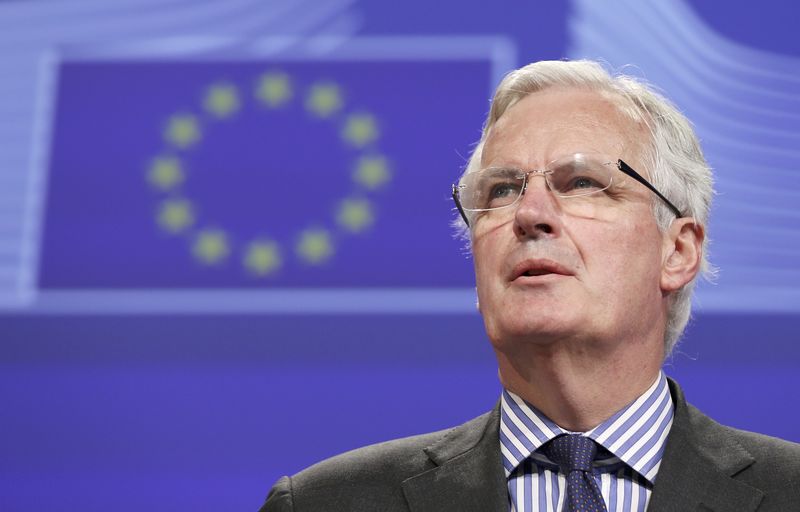By Francesco Guarascio
BRUSSELS (Reuters) - The European Union's lead Brexit negotiator would like British and EU officials to work in French rather than English during the divorce talks, an EU official familiar with Brussels' Brexit task force told Reuters on Friday.
After the report caused waves during British Prime Minister Theresa May's first EU summit in Brussels, Michel Barnier took to Twitter to deny - in English - having expressed such a view. However, he noted that language rules would be agreed by negotiators only once May launches the formal Brexit process next year.
The source told Reuters that people working with the former French foreign minister understood he would prefer his native tongue. "Barnier wants French to be the working language in Brexit negotiations with Britain," the EU official said.
Barnier, whose nationality and track record as an EU regulator overseeing the City of London financial centre has raised hackles in Britain, said no decision had been made yet.
"Never expressed myself on negotiation language. Work as often in English as French. Linguistic regime to be set at start; to be agreed between negotiators," he said on Twitter.
An EU spokeswoman said: "This will be agreed upon at the beginning of the negotiations - after receiving the Article 50 notification - and in common agreement with the negotiators."
Asked about the negotiating language, May told reporters: "We will conduct the negotiations in the way that is going to make sure that we get the right deal for the United Kingdom."
Using French would mark a shift away from standard practise among multinational teams in Brussels, where French lost its status to English as the EU's main working language after northern and eastern states joined in the past two decades.
Even officials from the EU's founding powers France and Germany now communicate with each other mainly in English.
SIGNAL
It would also send a signal to London that the EU plans to put its own interests first in negotiating divorce talks that the prime minister has promised to launch by the end of March.
Barnier's boss, former Luxembourg premier and European Commission President Jean-Claude Juncker, who met May over lunch on Friday, has said the EU must be "intransigent" in defending its principles during the talks.
Most British diplomats in Brussels are fluent in French but ministers and Whitehall officials largely share with fellow Britons the distinction of being among the poorest linguists in Europe.
Barnier's task force, currently numbering 15 staff and including no Britons, has been conversing mainly in French. But most EU officials are more at ease in English.
Asked about the issue, German Chancellor Angela Merkel said after the summit: "Each of us is allowed to speak their own language. Since Mr Barnier is a French citizen, it's hardly surprising that he speaks French, just as I speak German."
Barnier, who speaks fluent if accented English, was an unpopular choice for some British politicians. Some described it as "an act of war" by Juncker. As a commissioner until 2014, Barnier, 65, had a difficult relationship with Britain, where one newspaper called him the "scourge of the City".
Some EU politicians have suggested that English might lose its status as one of three official EU working languages, along with French and German, as a result of Brexit.

However, few see a challenge to the global lingua franca's position in Brussels.